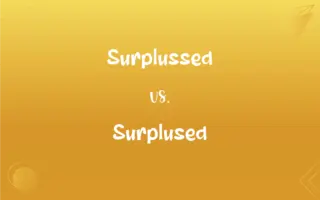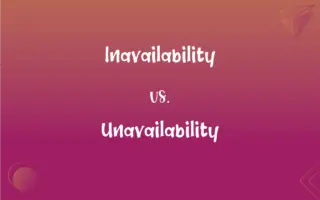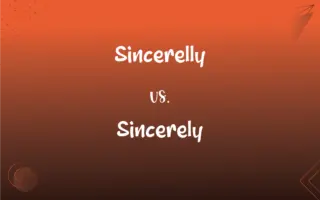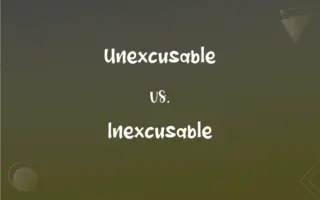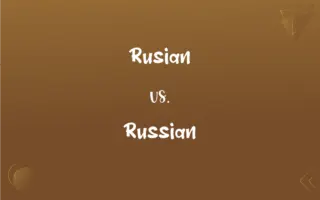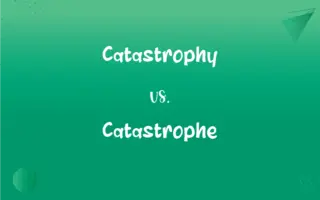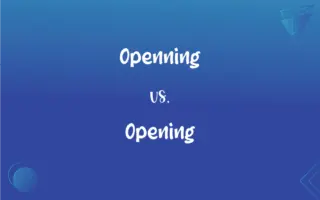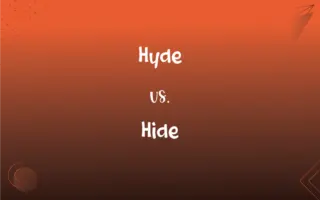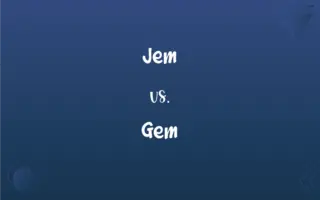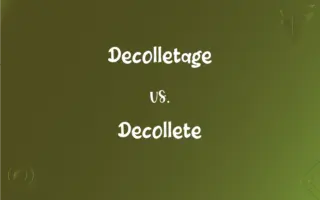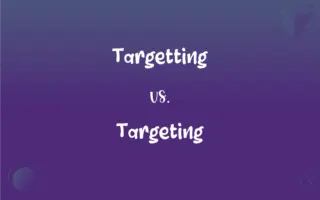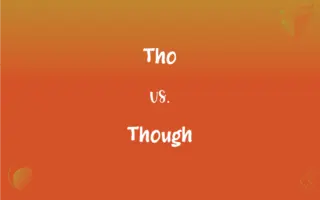Irrelevent vs. Irrelevant: Mastering the Correct Spelling
Edited by Aimie Carlson || By Janet White || Updated on March 13, 2024
"Irrelevent" is an incorrect spelling. The correct spelling is "Irrelevant," meaning not connected with or pertinent to the matter at hand.

Which is correct: Irrelevent or Irrelevant
How to spell Irrelevant?

Irrelevent is Incorrect

Irrelevant is Correct
ADVERTISEMENT
Key Differences
Recall that "irrelevant" is spelled with "ir-" plus "relevant."
Think of "elephant" and remember there is no "ele" in "irrelevant."
"Relevant" is the root word, just add "ir-" for the opposite.
Double-check the middle part of the word to ensure it's "-lev-" and not "-lev(e)-."
The word has three 'r's: make sure not to miss any.
ADVERTISEMENT
Correct usage of Irrelevant
His comment was completely irrelevent to the discussion.
His comment was completely irrelevant to the discussion.
These arguments are highly irrelevent to the case at hand.
These arguments are highly irrelevant to the case at hand.
She was upset by the irrelevent criticism in the review.
She was upset by the irrelevant criticism in the review.
Focusing on such irrelevent details can distract us from the main issue.
Focusing on such irrelevant details can distract us from the main issue.
The data might seem irrelevent at first, but it actually provides valuable insights.
The data might seem irrelevant at first, but it actually provides valuable insights.
Irrelevant Definitions
Irrelevant means not related to the subject being discussed.
Your opinion is irrelevant to the facts.
Irrelevant is something that is not applicable to the situation.
Your experience in cooking is irrelevant for this coding job.
Irrelevant refers to something lacking importance or significance.
The detail was irrelevant to the story.
Irrelevant signifies having no bearing on the matter at hand.
The data is irrelevant to our research.
Irrelevant can denote being off-topic or tangential.
He made an irrelevant comment during the meeting.
Unrelated to the matter being considered.
Not relevant, as:
Not at all related: totally unrelated, wholly unconnected, completely inapplicable.
Not usefully related: not associated in any way that is important or useful to the context being discussed: not materially applicable; having connections not applicable in the present situation.
Having no bearing on or connection with the subject at issue;
An irrelevant comment
Irrelevant allegations
Irrelevant Sentences
They found that most of the data collected was irrelevant to their research question.
She has a habit of asking questions that are completely irrelevant to the subject.
When designing a study, it's crucial to exclude any irrelevant variables.
He made a joke that was utterly irrelevant to the ongoing conversation.
The professor asked us to avoid including irrelevant information in our essays.
During the debate, she adeptly steered the conversation away from irrelevant topics.
In science, evidence that doesn't support or refute a hypothesis is considered irrelevant.
Searching for a job in your field might render your previous work experience irrelevant.
Keeping up with every trend can make last season's styles seem irrelevant.
Critics argue that traditional advertising is becoming increasingly irrelevant in the digital age.
The review contained several irrelevant comments about the author's personal life.
With the rise of online news, some feel printed newspapers are becoming irrelevant.
She was told that her skills were irrelevant for the new project.
Technology can render certain job skills irrelevant over time.
Teachers encourage students to ask questions, as long as they are not irrelevant to the lesson.
It's important to differentiate between relevant and irrelevant information when studying.
Avoiding irrelevant details helps in making presentations more impactful.
The director cut several irrelevant scenes to improve the movie's pacing.
The speaker was criticized for devoting too much time to irrelevant anecdotes.
Students sometimes focus on memorizing irrelevant details instead of understanding concepts.
When revising, remove any parts of the essay that are irrelevant to your thesis.
FAQs
Why is it called Irrelevant?
It is called "irrelevant" because it describes things that are not relevant or pertinent to the topic at hand.
What is the root word of Irrelevant?
The root word is "relevant."
What is the verb form of Irrelevant?
There is no verb form for "irrelevant."
What is the pronunciation of Irrelevant?
/ɪˈrɛlɪvənt/
Which conjunction is used with Irrelevant?
"And," "or," or "but," depending on context.
Which vowel is used before Irrelevant?
An "i" is used at the beginning.
Which preposition is used with Irrelevant?
"To," as in "irrelevant to the topic."
What is the singular form of Irrelevant?
Irrelevant
Which article is used with Irrelevant?
"An" or "the," depending on context.
Is Irrelevant a noun or adjective?
Adjective
Is Irrelevant a negative or positive word?
Generally negative
Is Irrelevant a countable noun?
No, it's an adjective.
Is the Irrelevant term a metaphor?
No
Is Irrelevant an adverb?
No
Is Irrelevant an abstract noun?
No
What is a stressed syllable in Irrelevant?
The second syllable "rel" is stressed.
What is the opposite of Irrelevant?
"Relevant"
What is the second form of Irrelevant?
N/A, it's an adjective.
What is the plural form of Irrelevant?
Irrelevant has no plural form as it's an adjective.
How many syllables are in Irrelevant?
4
Is Irrelevant a vowel or consonant?
Starts with a vowel
Is the word Irrelevant imperative?
No
Which determiner is used with Irrelevant?
"An" or "the," depending on context.
What is the first form of Irrelevant?
N/A, it's an adjective.
How do we divide Irrelevant into syllables?
Ir-rel-e-vant
What part of speech is Irrelevant?
Adjective
What is the third form of Irrelevant?
N/A, it's an adjective.
Is Irrelevant a collective noun?
No
What is another term for Irrelevant?
"Extraneous"
How is Irrelevant used in a sentence?
"His comment was completely irrelevant to the discussion."
About Author
Written by
Janet WhiteJanet White has been an esteemed writer and blogger for Difference Wiki. Holding a Master's degree in Science and Medical Journalism from the prestigious Boston University, she has consistently demonstrated her expertise and passion for her field. When she's not immersed in her work, Janet relishes her time exercising, delving into a good book, and cherishing moments with friends and family.
Edited by
Aimie CarlsonAimie Carlson, holding a master's degree in English literature, is a fervent English language enthusiast. She lends her writing talents to Difference Wiki, a prominent website that specializes in comparisons, offering readers insightful analyses that both captivate and inform.



